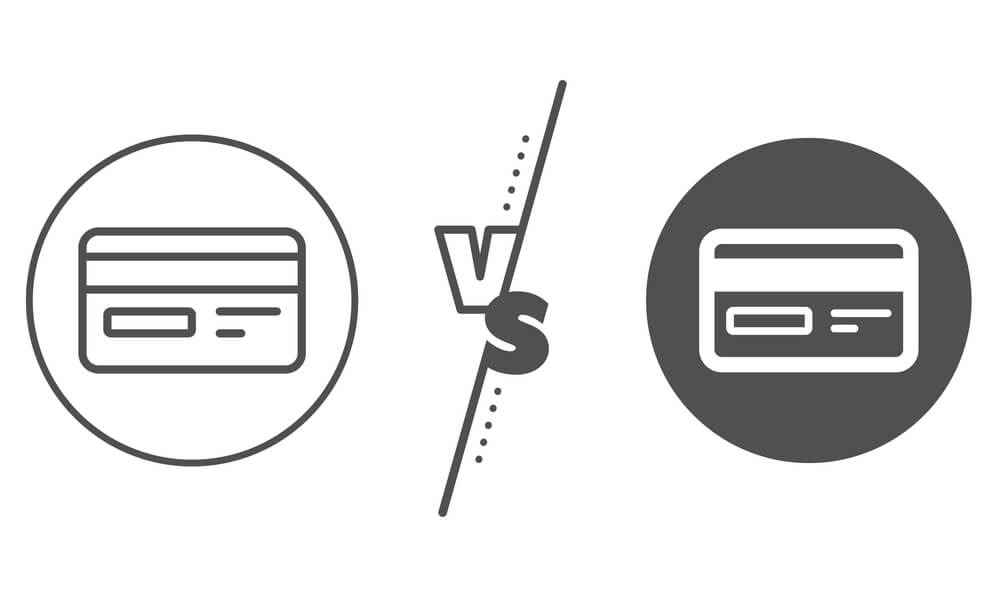Debit Card vs. Credit Card: Which Is Better?
Many of us know we have an option to use a debit card but don’t take advantage because we lack knowledge or interest or simply are in the habit of writing checks. While checks, ATM cards and credit cards are fairly self-explanatory, many people fail to see much difference between a credit card and a debit card.
So is there a significant difference? And is one better than the other?
What’s The Difference?
Every time you use a credit card, you actually are borrowing money that is made available to you by a bank or other financial institution. The institution pays the debt to the vendor and, in turn, you pay the money back to the institution. By signing up for a credit card, you agree to pay back the money that you borrowed, in addition to any interest drawn on the amount you borrowed.
Odds are, you have a debit card in your wallet or purse right now, since many ATM cards are programmed to have debit options. Issued by your bank, debit cards take funds directly from the money that you have in your bank account – acting much like a check, just faster. With a debit card, you don’t have to carry cash or checks, and it is very convenient to shop at a variety of places including gas stations, grocery stores, restaurants and retail stores. They provide instant access to your money and are accepted worldwide.
Debit cards are used much like credit cards, meaning that the store where you are shopping ‘swipes’ them and you are normally given the option of signing your receipt instead of using a required PIN number (you can enter your PIN number if you prefer). You also typically do not have to show a picture ID.
Which Is Better?
Maybe you still don’t see much difference, besides where the money comes from and when you have to pay up. So which one is better to use? It depends upon how careful you are with your card and why you are using the card.
The features that make debit cards convenient – instant access to your money, lack of a required PIN number and not having to drag out your photo ID when you use it – make fraud that much easier. Unless reported quickly, theft of your debit card can quickly devastate your bank account. This is where you begin to see the difference.
Credit card companies are held to strict liability laws; the law limits consumer liability for credit card fraud to $50. For example, if you notice suspicious charges on your credit card statement such as double billing or an incorrect charge, the credit card company is obligated to investigate if you send in a written request within 60 days.
For debit card fraud, your liability is $50 if you notify the bank within two days of noticing the fraudulent charges. After two days, your liability increases to $500, and up to your entire account balance after 60 days. So, if you report the theft after two days, you can be held responsible for paying for purchases or charges that you didn’t make. Although many banks have started to implement voluntary plans to limit customer liability to $50, there is no federal law regarding this issue.
The key to protecting yourself when you suspect that your stuff has been stolen is acting fast! The Federal Trade Commission offers an excellent resource that can help you respond quickly in case your wallet or purse is stolen.
In addition to stricter liability laws, credit cards offer more consumer protection on purchases made. Use credit cards for very large or fragile purchases and for objects that will be delivered to your home after the purchase. This gives you added insurance in case the purchase is damaged in route.
One final advantage of credit cards is that they are helpful for consumers seeking to establish or reestablish an attractive credit history. Responsible credit card usage can improve one’s credit rating, which will improve your chances of obtaining favorable credit terms (low interest rates, low fees, etc.) for automobile loans, mortgages and personal loans.
One pitfall for many debit card consumers is not keeping up with their debit transactions. This is like writing checks and not recording your purchases – you may end up trying to spend money that you don’t have! Discipline yourself to keep up with your transaction receipts.
Finally, a debit card is not just a card – it’s ready access to your money. Be as careful with it as you would with your wallet if it contained the contents of your entire bank account.
By Rebecca Lindsey

